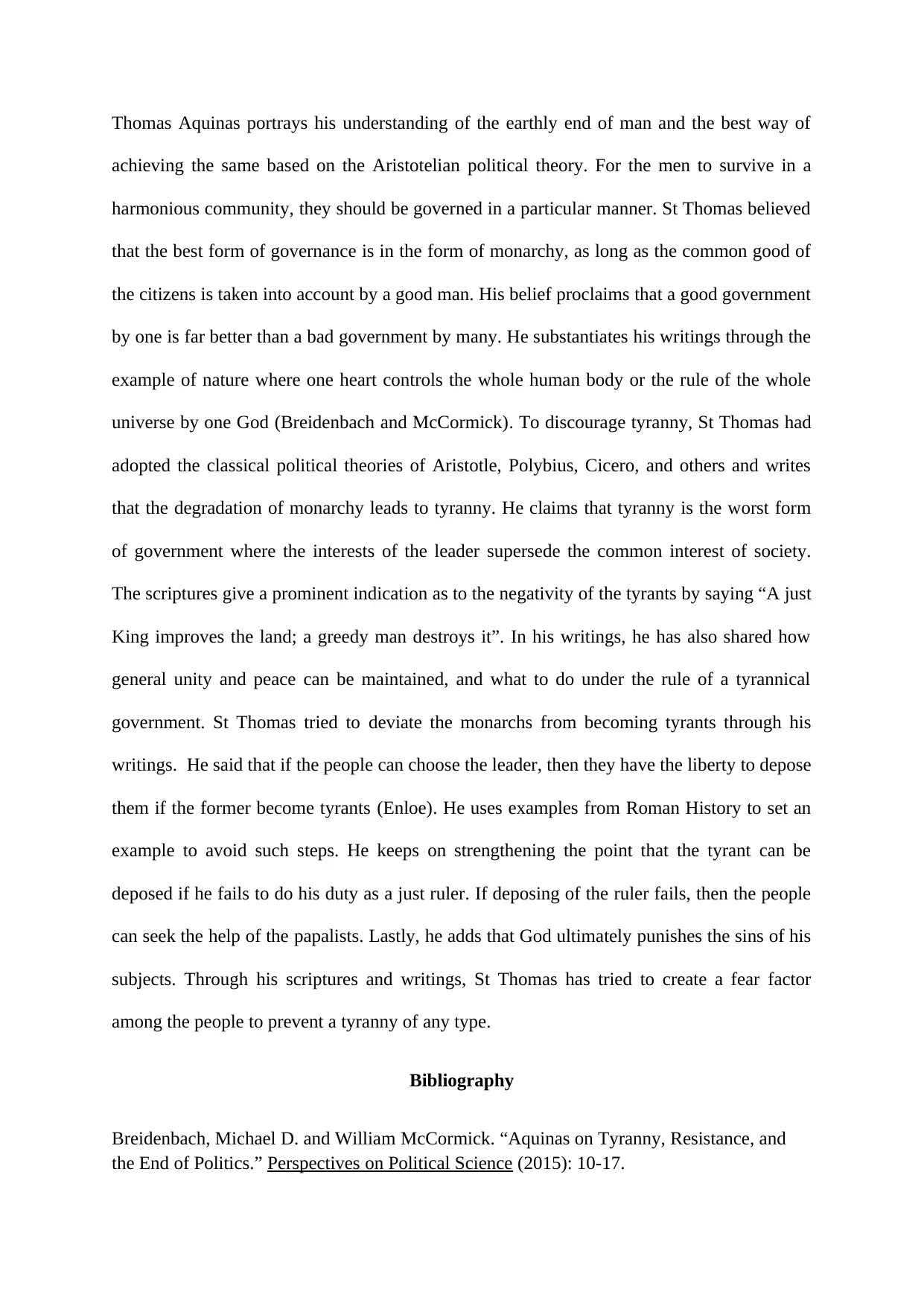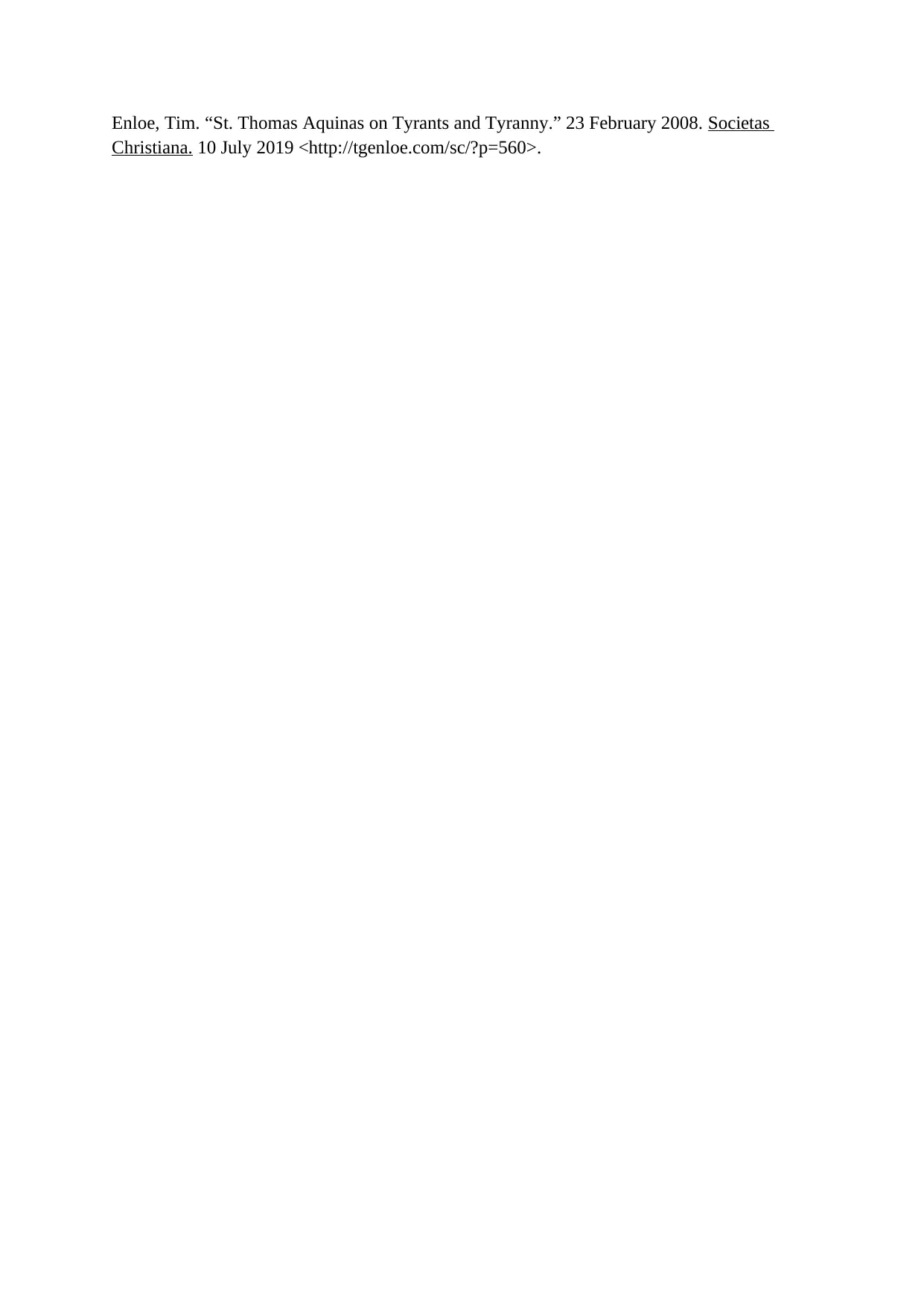The Political Philosophy of Thomas Aquinas: Monarchy and Tyranny
VerifiedAdded on 2022/11/19
|2
|448
|39
Essay
AI Summary
This assignment examines Thomas Aquinas's political philosophy, focusing on his views on governance, particularly the contrast between monarchy and tyranny. The paper highlights Aquinas's belief in the superiority of a good monarchy, where the common good is prioritized. It discusses his justifications, including the analogy of the human body and the universe. The assignment delves into Aquinas's understanding of tyranny, emphasizing the importance of a just ruler and the potential for the people to depose a tyrant. The paper also explores Aquinas's use of historical examples, his emphasis on the role of papalists, and his belief in divine punishment for unjust rulers. The assignment concludes by highlighting Aquinas's efforts to prevent tyranny through his philosophical writings.
1 out of 2


![[object Object]](/_next/static/media/star-bottom.7253800d.svg)